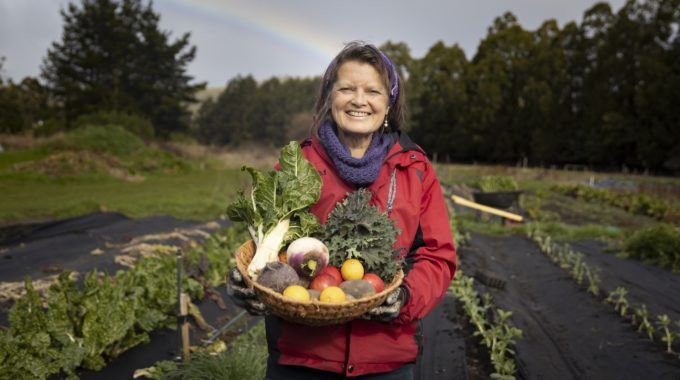Scrubby Hill Farm: local food in action
In the small town of Geeveston, in the south of Tasmania in the hills of the Huon Valley, a market garden is growing both food and community resilience through social enterprise. Scrubby Hill Farm has been an integral part of the Geeveston community for seven years now, and the ongoing success of the operation shows that providing local people with an inclusive space where they can grow food, share what they grow and learn from and connect with others is one of the most valuable resources a community can offer.
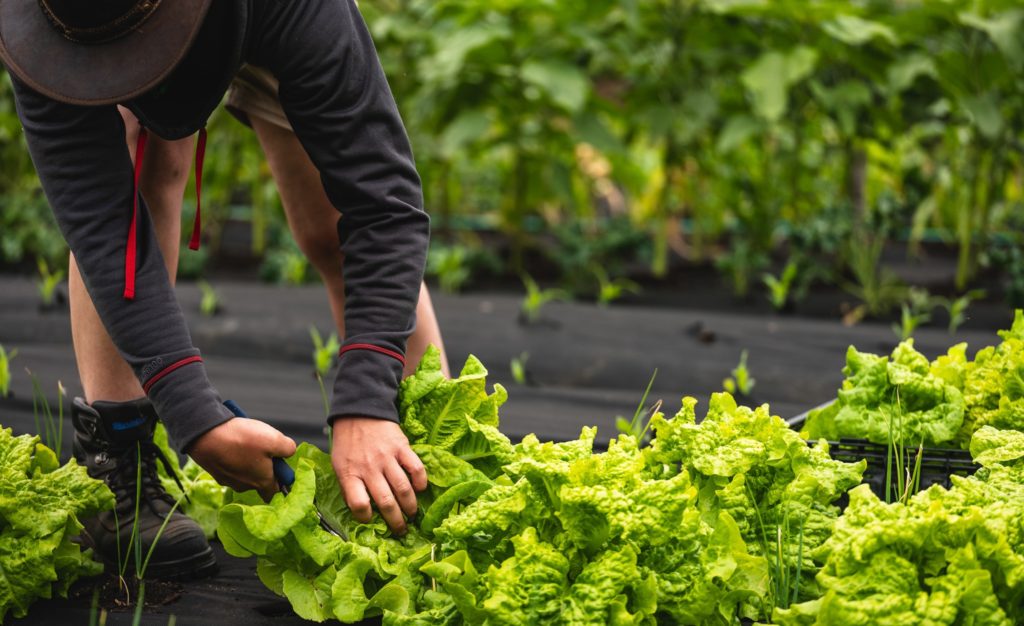
The farm was developed in response to local community feedback that people were looking for greater access to good food and better health outcomes. Coordinated by the Geeveston Community Centre, Scrubby Hill Farm also runs a fortnightly pop-up farmgate stall, holds workshops and open days and provides a friendly place for local volunteers to come along, meet fellow growers and learn more about growing your own food.
Work for the Dole projects initially helped to establish the two-and-a-half-acre farm. This served the dual purpose of creating a market garden and helping people to develop new skills. However, since COVID hit, these types of projects are no longer feasible. And so, Scrubby Hill Farm is now moving into a whole new phase of development.
“It’s a bit of a reimagining phase for us at the moment,” says Krystal Cox, Scrubby Hill Hub Coordinator. “We’re now moving towards more community ownership within the farm. We’re bringing people in to not only learn about how to grow food, but to connect with others as well. Scrubby Hill Farm has been through quite a few iterations over the past seven years. But what we know is that it’s a much-loved community resource.”
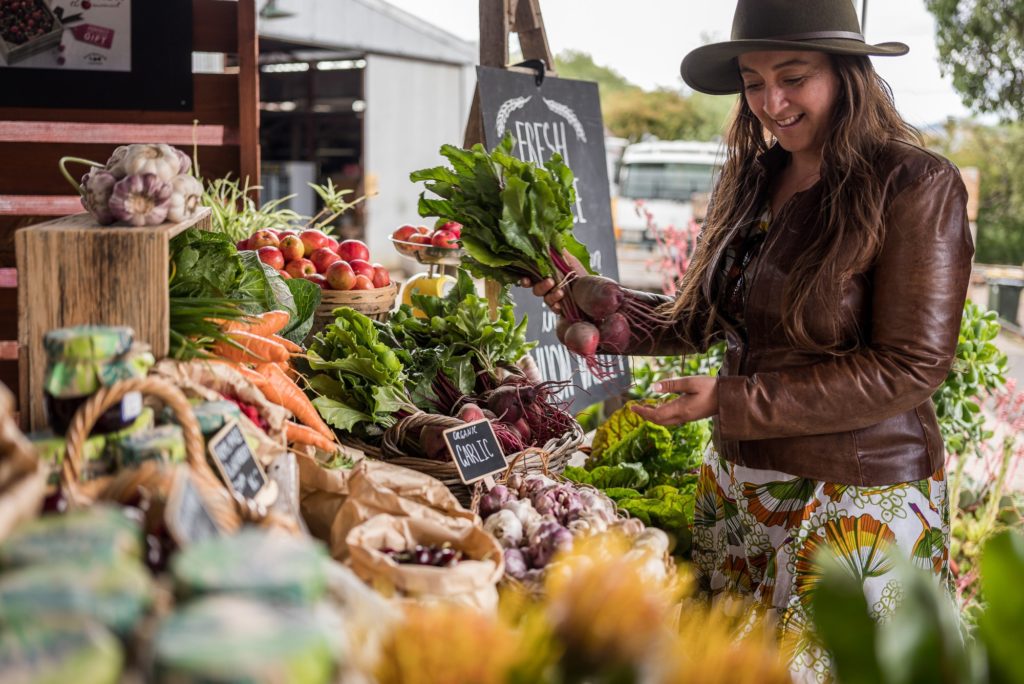
Sharing and caring
Just last week, Scrubby Hill Farm launched a new micro farm project. One section of the farm will be split up into 10 micro farms of five rows at 10 metres each.
“We’re inviting the local community to take part,” Cox says. “It could be an individual, a school group or a collective. It’s like an allotment program. But we’re offering the opportunity to grow food with an educational experience alongside that.”
Each micro farmer will also be asked to grow something for the Scrubby Hill pop-up stall.
“That way, they’re not only providing for themselves and their families; it’s about providing more food for the community,” Cox says. “That’s the essence of our operation. It’s about sharing what we have and creating a circular economy within the community.”
The fortnightly pop-up not only sells food from Scrubby Hill Farm; it also supports other local growers, who can come along to the pop-up and showcase their produce and sell to local food lovers. A Huon Valley Food Hub has also been established at Huon Valley Council. Scrubby Hill Farm has partnered with the council to offer a vegie box service.
“There are also options for people to also purchase a pay-it-forward vegie box, so you can buy a vegie box for someone who is in need,” Cox says. “That’s going well.”
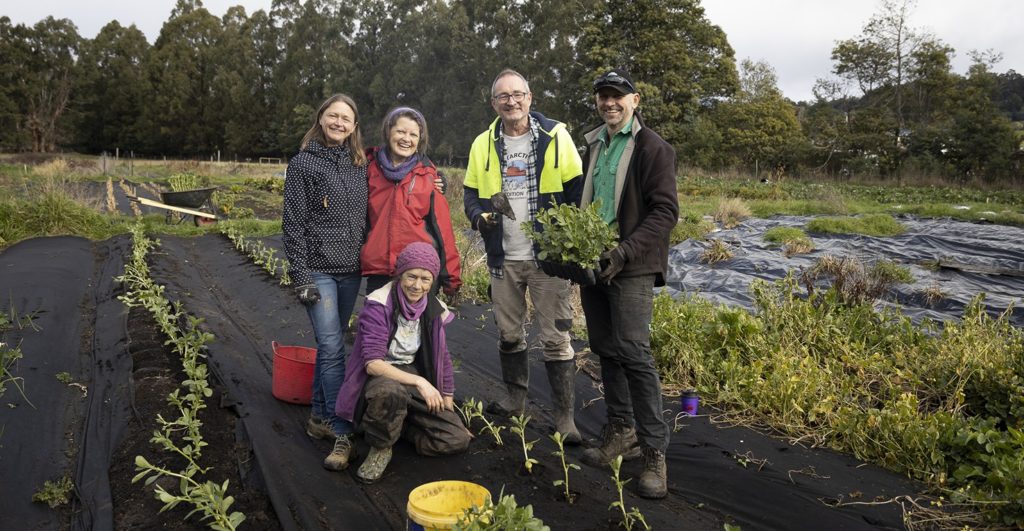
Open learning
While one section of the farm will be opening up micro-farming opportunities for locals, the other half will be offered as a market garden landshare opportunity. Scrubby Hill Farm is currently calling for expressions of interest in this project.
“This will be an enterprise solely,” Cox says. “We want to show people that there is an opportunity here. If you want, you can start this kind of business. It’s a great learning experience for people starting off. They’ll be able to trial things and fail and have another go; all while watching and learning from experienced market gardeners.
“There aren’t many food-producing spaces in the valley that the community can freely get into. And what people are responding to is that we’ve got the amenities. We’ve got the water set-up; we’ve got a cool room. We have what they need, and there’s the peer-to-peer learning experience as well. It’s a chance to talk with other growers and ask, ‘How did your carrots go?’ Or, ‘Why is my such-and-such not seeding?’. We feel that peer-to-peer learning is at the core of the whole learning process.”
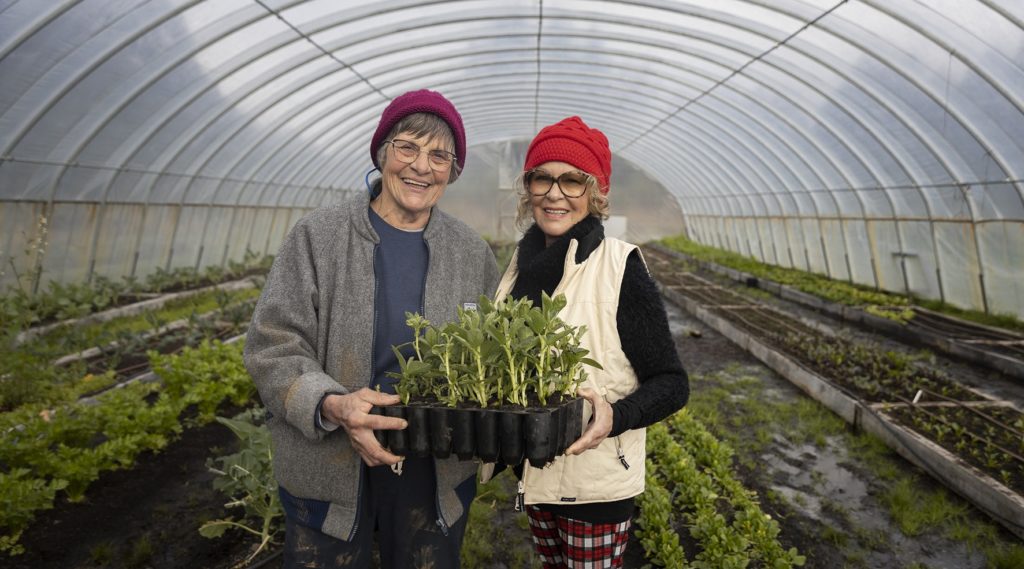
Finding the balance
While growing food and building community are important objectives, and the Scrubby Hill Farm model has proven to be a hugely successful and much-loved community resource, an enterprise cannot survive on good intentions alone. Funding is also required.
“We’ve got backing for the next six months,” Cox says. “Then, during the next six months, we will be asking for help. Before COVID, we had a lot of support on-site with the Work for the Dole program. And that was a win-win situation, obviously. But at the moment, we’re struggling for people to understand the value of coordination and what it takes to actually manage the site. There’s value in what we’re offering the community for its health and wellbeing, and we’re creating a circular economy within the local area.
“But I think with a lot of community farms, it is always a struggle. The balance between creating a financial model that’s sustainable, but also delivering on what we want to do, which is the social outcome – connecting people. That’s ultimately what we all want to achieve. So it’s about finding a model that hits all of those notes.”
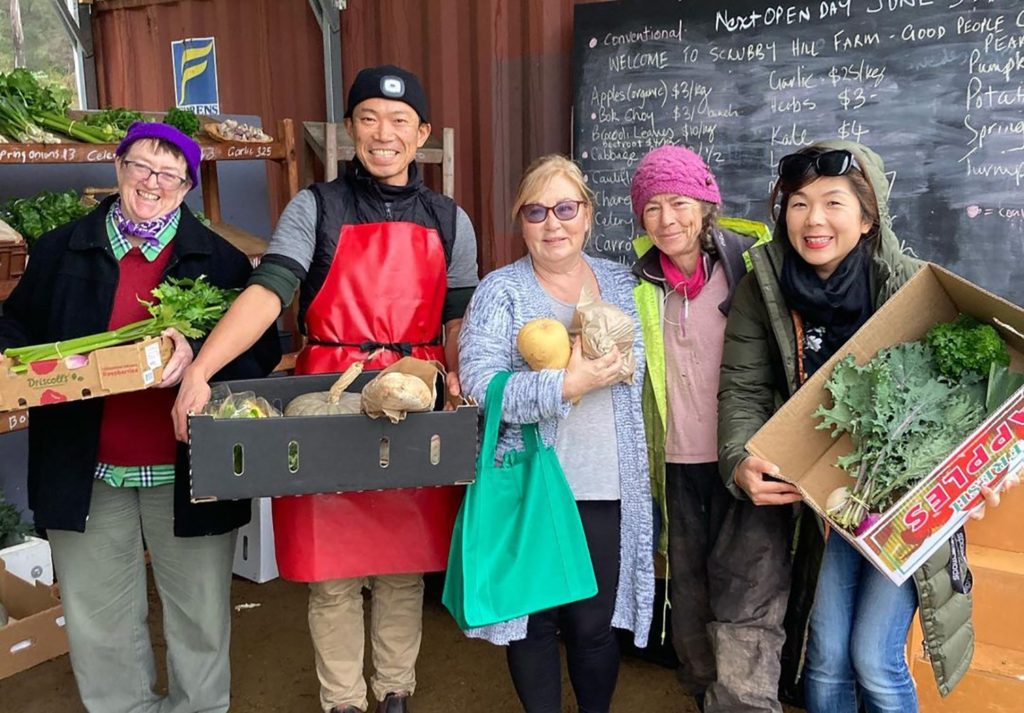
All are welcome
From wasabi workshops and tomato-planting days to welcome events for newly arrived refugees, Scrubby Hill Farm is the local food movement in action. A movement that offers food security, the opportunity to learn new skills and the chance to connect with others. Whether it’s the volunteers who come to work on the farm or locals who come to buy fresh produce, Scrubby Hill Farm has become a genuine asset to the Geeveston community.
“I think for everyone, it’s the same,” Cox says. “It’s having access to local healthy food, and the opportunity to be able to meet other people in your community in an inclusive space.
“Because it is hard to get onto a farm and have that experience. If you’re running an enterprise, you just can’t offer it. So we’re very lucky. And if we can open that up; if we can have half of it as enterprise and the other half to welcome everyone in, it’s a win-win.”
Local food movements like these are growing in popularity. And as our food supply chains become more fraught with problems, and the pandemic has made us so much more aware of where our food comes from, it’s likely that community spaces such as Scrubby Hill Farm will only become ever more important for Australia’s food future.
“It’s grassroots,” Cox says. “And the types of people that come here are really varied as well. We have lots of single people who might be living alone. And that social connection for them is hugely important. So it’s certainly offering much more than food. But if the supply chains are failing, at some point, we’re going to need to pull together and feed ourselves.”
Find out more about Scrubby Hill Farm here. All images are courtesy of Huon Valley Council.


